
An allegory set in an archetypal Czech village, it tells of what happens when a sequence of mysterious events take place, including the disappearance of the stationmaster. While everything has a rational explanation, collective paranoia takes hold and everyone’s worst instincts are released. Interrogations, the abolition of rights and the search for scapegoats ultimately lead to murder


It is summer 1944. The war is far away from Slovak mountains for the time being. The head of forest management Borodác brings a new employee to complete the eight woodcutters work team of Czechs, Slovaks and one Pole - the young guy is Martin Uher, a former clerk form Prague. The eight tough men do not trust the newcomer at first, but as time is passing, they got used to him. After some time, Martin gets next to Julika, a young wife of the gamekeeper Tkác (Vlado Müller) and they begin to go out secretly. The gamekeeper knows that Martin had promised to cooperate with German Gestapo, after he had experienced a hard interrogation. In avoiding to be a grass, Martin leaves Prague to hide in Slovak mountains. Tkác wants Martin to inform on his colleagues who hide guns in the forest to ready to use them against Nazis.

(segment "Aljaška")

It is the summer of 1968 and also in South Moravian Pálavice appear political clashes. The so far peacefully farming Unified farmers' cooperative starts splitting. Some of the farmers have found the cooperative called Vidrupa and want to deal with wine in private trade. Michal Janák, chairman of the farmers' cooperative is a deliberate man and refuses the latent return to the capitalism. As an excellent farmer he continues preparing planting out new vineyards. His adversaries do not agree - the returns will come many years later. Jozka Hrdlicka, an émigré, notices on the Austrian TV the interview with the representatives of Vidrupa and decides to visit his native village. The new suit and the hired car transform the bankrupt and criminal to the successful businessman with wine.
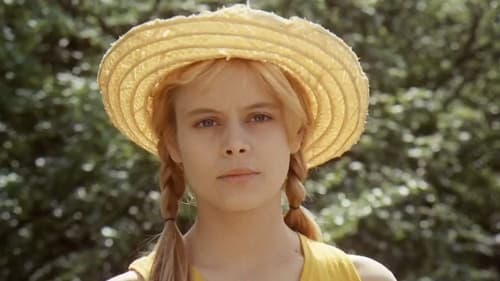
Blazenka likes to imagine she is on a desolate island and has to find a way how to survive. After the death of her mother she stays together with her baby brother and has to take care of the family. In this difficult situation, she plays this role-game that helps her to deal with the sudden loss of her mother.

According to one Beskydy Mountains legend, if you do a good deed you will see silver trees. Little Ondra knows trees like that. In his family's cottage hangs a picture showing silver firs, a person falling from a height and a watch. In art lessons Ondra paints trees of the same kind. - One day Lojzek Hojgr, a man who climbs fir trees to gather the seeds, comes to see Ondra's parents. Long-ago Ondra's father has had such a job and Lojzek is his long-time friend. Hojgr moves into a half-ruined wood cabin. Ondra's father takes him on a visit to Lojzek and both demonstrate the beautiful but dangerous work of seed-gathering to the boy.


The life of the famous French writer Alexander Dumas the Elder. Screenwriter Jaroslav Dietl did not hide his admiration for this literary giant, and in addition to the screenplay he also wrote a three-part TV play about Dumas (starring Vladimír Menšík). In Kachyn's film, Dumas played the father and son of the Štěpánková brothers, and it was a very difficult and difficult task for these young actors.

Czech nobleman Petr Vok of Rozmberk (Milos Kopecký) is no longer so young, but his amatory adventures continue to arouse the envy of men and the indignation of respectable ladies. In his "female retinue" at the chateau in Bechyne he has twelve comely girls, but he still manages to seduce the miller's wife and the maid. Lord Vok is in great financial difficulties. His elder brother Vilém advises him to marry a rich woman. Petr surprises him by announcing his intention to marry the very young Katerina of Ludanice.

Three detective stories, three different views of life and death... Collection of three horror short stories.

Un cometa pasa muy cerca de la tierra, arrastrando con él una pequeña parte del norte de África y llevándose a un montón de gente. Entre ellos, Angélica, que acaba de escapar del barco de un despiadado traficante de armas, y a sus dos hermanos, que la están buscando. Luego hay un grupo de nativos que planea una rebelión contra los colonos franceses. Todos estos conflictos se vuelven secundarios cuando la gente finalmente se da cuenta de que están condenados a vivir juntos en un planeta alienígena. Sin embargo, este tiempo de paz y felicidad mundial no durará mucho tiempo.... Adaptación de la novela "Hector Servadac", de Julio Verne.

Basada en textos reales sobre juicios inquisitorios, esta película tiene como argumento el narrar las atrocidades que cometía la Inquisición sobre personas inocentes, y que por alguna razón eran catalogadas como brujas, herejes ó hechiceros.
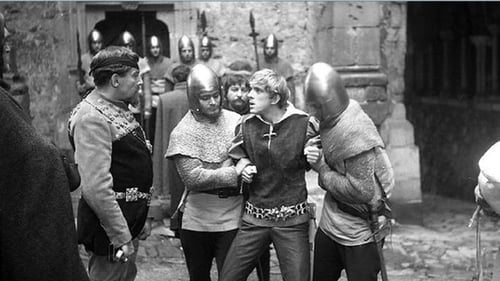
The young Prince Charles (Jaromír Hanzlík), the future King of his country Charles IV, is being educated at the French court in the company of his fiancée Blanche (Daniela Kolárová). One day he receives a summons from his father John of Luxembourg (Milos Kopecký) in Italy. He leaves for Italy accompanied by a deputation from Bohemia. On the way the prince's company fights a battle with armed Milanese against heavy odds. Thanks to Charles's perspicacity, the prince's almost naked soldiers win through. In Lucca in Italy Charles joins his father, and here he experiences an amorous adventure and escapes from the traps laid by the Italian rebels.

(segment "Poslední golem")
Prague - mystical city. It was here in the Middle Ages, alchemists and magicians gathered. Rumor has it that the house of Prague hide secret obtain the philosopher's stone, and complex multi-level labyrinth of underground tunnels and cellars keep many unsolved mysteries and untold treasures. Prague just full of ghosts and phantoms. Let us slightly lift the veil that hides the secrets and little to satisfy your curiosity, get acquainted with some legends of Prague.

Young script-writer Frantisek (Petr Cepek) is hired to write a film script based on the successful novel Looking Back. He meets with the novel's female author, a University professor and writer named Olga Machová (Jirina Trebická), approximately ten-years-older than him. In the beginning, they do not understand each other at all. Frantisek is a skeptic experiencing a moral crisis, unsatisfied with both his work and his private life - he lives separated from his wife and has no deeper feelings for his numerous lovers. He even gets drunk from time to time and breaks the public peace. Olga is lonesome, too, but considers her life fulfilled.
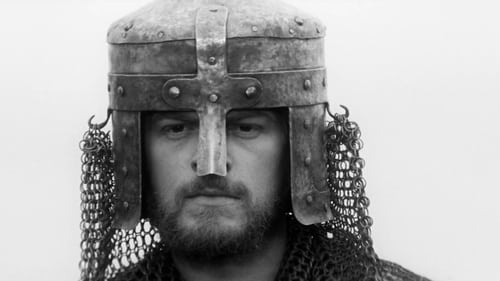
Jakub
El conflicto entre razón y fe, la ausencia de Dios y la mentalidad pagana fue el eje argumental de una de las películas más recordadas de Frantisek Vlácil: El valle de las abejas.

A dark fable set in an early 1950s Czech village, a time of Soviet-style socialism which saw the implementation of collectivized agriculture and the mass closure of monasteries and convents.
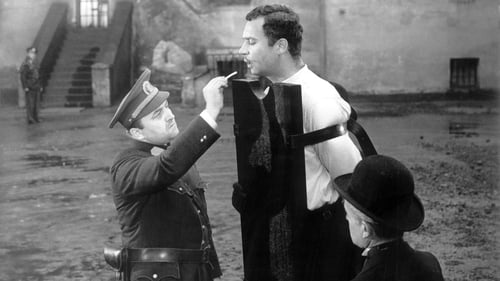
Strýček
Un hombre se casa con una mujer, y ésta le es infiel. El hombre, por venganza, la asesina, siendo condenado a muerte... Aclamada película checa por su innovador sistema narrativo: todo el film está rodado al revés, comenzando por final y terminando con el principio, e incluso los diálogos están pronunciados a la inversa.

La película se centra en la planificación y la ejecución del atentado contra el general de las SS Reinhard Heydrich, máximo representante del Tercer Reich en el Protectorado de Bohemia y Moravia durante la Segunda Guerra Mundial.

cestující
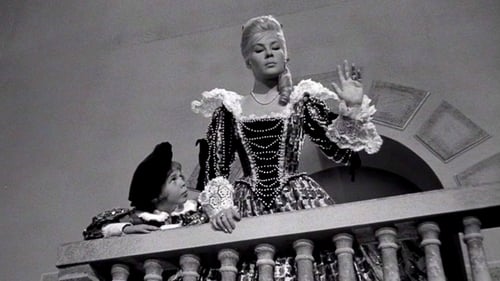
An anti-war black comedy set during the Thirty Years' War. The film combines live action with animation to suggest the artistic style of the engraver Matthäus Merian.
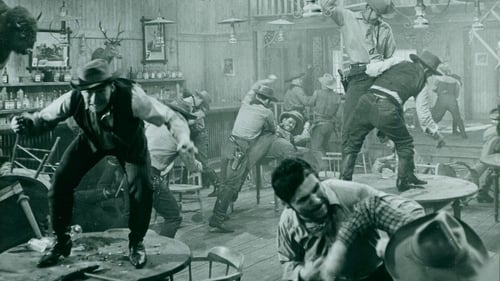
(uncredited)
A satire of the Great American Way, with Lemonade Joe a "clean living" gunfighter who drinks only Kola-Loca Lemonade and convinces everyone else in town (with his gun skills) that all "real men" drink ONLY lemonade!

A group of outcasts, including a vagabond and a prostitute, gather at the outskirts of the industrial area of a large Czech city, one of the things that helps some of them survive is alcohol.

Czech friends help refugees from Nazi Germany escape in 1939.

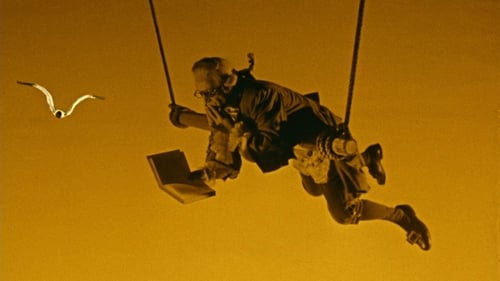
Dutch Sailor
El astronauta Toni aterriza en la Luna y tras desmayarse cae en una profunda ensoñación. En su particular alucinación, el viajero estelar se encuentra con míticos visitantes de la Luna como Cyrano de Bergerac, Nicholas, Barbican, Michael Ardan y el barón Münchhausen. Se toman unas copas y el barón, tomando a Toni por habitante lunar, decide llevarlo a la Tierra para que conozca cómo viven los seres humanos. Aterrizan en Constantinopla, donde Blanca, una princesa del harén, se fija en Toni, a quien le pide que la libere. El barón le ayuda entonces a raptarla mediante sutiles métodos como pasarse por la espada a medio ejército aprovechando un apagón. Entonces huyen a caballo y se embarcan en un velero que se ve inmerso en una emboscada de la inmensa armada turca. De nuevo, el ingenio del barón los saca del atolladero y huyen en botes, pero son tragados por una ballena en la cual recorren medio mundo...

Guest at the bar

výhybkář

prisoner in a truck

worker from Waldes

host

lesník

Krejcí

During the Nazi occupation of a Czech city civilians are being rounded up on the slightest of pretexts and shot. One day three high school boys who crack jokes about a recently deceased "hero of the Reich" are pulled out of school by the Gestapo.

Telling the prisoners of a death camp. Boxer Tony Majer, who got into a concentration camp for a fight with the Gestapo, remembers the murderous work in quarries, on the cruel torture of the Nazis and prison solidarity that helped him survive.

Kulisák
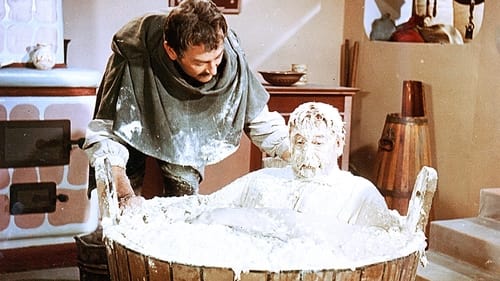
sladovnický

Pavel, un joven estudiante que vive en Praga en 1942, decide esconder a Hanka, una chica judía que huye de las fuerzas alemanas, en el ático del edificio en el que vive. (FILMAFFINITY)

Czechoslovakian film.

(segment "Glorie")
Czech comedy fantasy directed by Jiri Krejcik et al.

The title of this highly-regarded Czech drama translates as Wolf Trap. Set in the 1920s, the story revolves around an ambitious young provincial politician (Miroslav Dolozai) who enters into a marriage of convenience with a smotheringly possessive -- and much older -- woman (Jirina Sejbavola). Hoping to temporarily escape his overbearing wife's clutches, the husband strikes up a friendship with her young ward (Jana Brejchova). The relationship blossoms into a deep abiding love, but the jellyfish husband can't bring himself to declare his ardor to the girl. Even after the death of the wife, the husband hasn't the intestinal fortitude to admit his passion, and the results are bleak indeed for the unfortunate ward. Director Jiri Weiss does a masterful job staging his story of frustration and denial against a backdrop of post-WWI bourgeois banality.

racketeer

Hetman
After the battle of Sudoměř the Hussite teaching spreads through the whole country and people start leaving their homes to help build the fortification of Tábor. Prague citizens request help against the army of Zikmund. The Hussite army with Jan Žižka in the lead make their way towards Prague. They fortify themselves on the mountain Vítkov and engage in a bloody battle with Zikmund’s huge army.

Ziethen's hussar
Lost Children (Czech: Ztracenci) is a Czechoslovak war film directed by Miloš Makovec. It was entered into the 1957 Cannes Film Festival.

No se sabe si realmente Labakan es un príncipe o un mendigo. Pero lo que si es seguro ,es que él demuestra que la auténtica riqueza está en el interior de cada uno y que, lo que importa es el amor.

Second half of the 19th century. In a small town in South Bohemia, fifth-former Jan Ratkin is living through the confusions of first love together with his classmates.

soldier at Vysehrad
The second part of the revolutionary Hussite trilogy takes place in the years 1419-1420.

Dog's Heads (Czech: Psohlavci) is a 1955 Czech drama film directed by Martin Frič, based on the novel of the same name by Alois Jirásek. It was entered into the 1955 Cannes Film Festival.

hrnčíř v podhradí
A selfish self-centered widowed ruler, barely tolerated by his subjects and called appropriately enough, 'King Myself, First' asks his three daughters to name the measure of their love for him. When one of them says, "more than salt", he banishes her from the kingdom. Not understanding what she meant the King assumes love can only be measured by precious metals or one's own talent, the 'correct' answers from his other two daughters. The arrogance of the King leads him to gather all the salt in the kingdom and destroy it. Of course, this backfires as he slowly learns the universal value of the substance, and of course, the essence of his daughter's reply. With the help of the wise and magical old 'herb woman', the King also learns what it means to be a true and wise ruler.

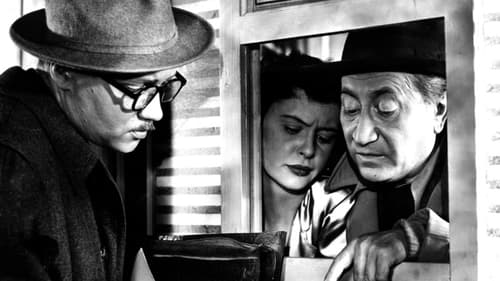
A few bus-loads of holidaymakers from the agricultural cooperative on a day trip arrive to see the show at the Slavia Circus. But, they have bad luck. It is Monday, the day on which the employees have their extra day off.

Bouzek
The movie describes proletarian life in the Czech Lands after World War I.

farmer František

Poetic story of a proletarian couple's relationship in the years of economic crisis and unemployment.
































